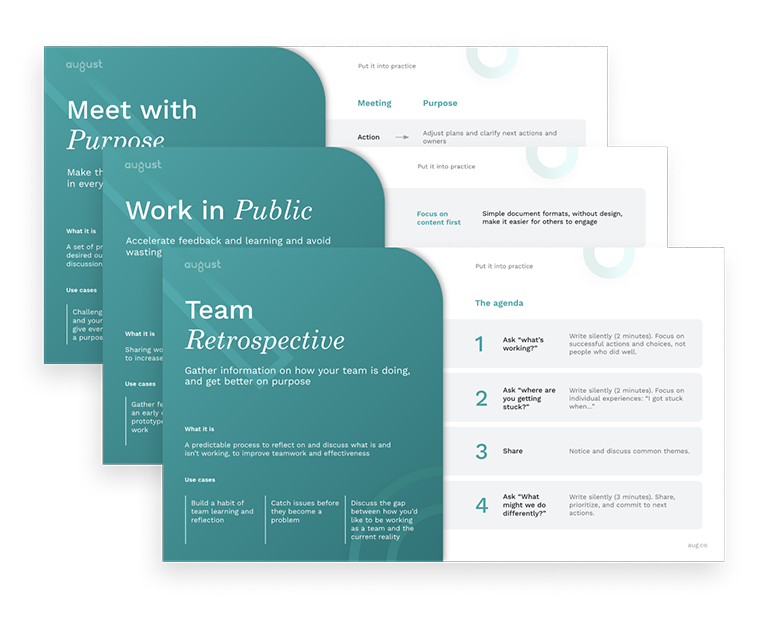Published February 21, 2023 | Updated February 21, 2023 | 4 minute read
The fundamental ways that companies work are changing. In the face of increasingly complex, fast and unpredictable markets, businesses are steadily shifting towards project based work.
Also commonly known as “agile teams” or “project management,” project based work is rapidly replacing the traditional structure of organizing people around their role or job title.
Big companies in particular are using projects at scales we’ve never seen before. Powered by the dual disruptions of global pandemic and the rise of automation, the project economy is on track to generate $20 trillion in economic activity and employ 88 million people worldwide in project management roles by 2027!
But project management isn’t perfect. Research indicates that despite all the attention paid to process, only 35% of projects are successful at delivering results.
I get to spend lots of time helping leaders design their companies’ approach to agile work. At August we call them SLAM Teams - Small, Lean, Autonomous, and Multifunctional. I love helping leaders learn how to completely restructure their thinking about decisions, authority and expertise through the SLAM design process.
But frequently, the senior leaders I work with don’t quite grasp the importance of their role as the project sponsor. In fact, project expert Antonio Nieto-Rodriguez cites ineffective sponsorship by senior leaders as one of the biggest contributors to agile project failure.
The project sponsor plays a key role in making or breaking a SLAM team. To better set senior leaders up for success, here are my top 3 defining characteristics of good project sponsorship.
1. Be critically involved in your projects.
SLAM teams have autonomy and authority to make decisions and test solutions without leadership sign-off. But this doesn’t mean that you as a project sponsor are not needed.
You’re more than just a permission slip – you’re a treasure trove of experience, perspective and knowledge!
SLAM teams need your coaching and advice, which you can only meaningfully offer if you’re well versed in the inner workings of both the mission and the SLAM methodology.
Project sponsors should be able to dedicate significant time to the health and vitality of the project - at least 4-5 hours per month.
These should be quality hours, mind you: hours spent energizing the work, asking questions, offering insights, and mobilizing resources.
SLAM team members need your support as they navigate ambiguity, test solutions, and chart success out of failure.
Your comfort with ambiguity is paramount here - you’re not there to set them straight or give them the right answer, but to provide real-time support in the gray areas, while trusting them to figure it out.
2. Ensure a Purpose-Driven Mission.
Good project sponsorship starts before the SLAM team is even formed, when you define the SLAM mission: the problem you’d like the team to solve.
Here’s the trick: it needs to be a good problem. Not every challenge is right for a SLAM solution.
Here are a few questions to help you assess and shape a SLAM mission:
- Is the project connected to a higher purpose, aligned with the company’s values, mission & cultural initiatives?
- Will this mission attract the best people to work on it?
- Is the mission uncertain, open-ended, framed by learning goals, and open to whatever the outcome might be?
- Is the mission non-prescriptive, telling the team WHAT to do but not HOW to do it?
If the answer to any of these questions is no, your mission needs realignment before you assemble the team.
3. Give Agile Teams True Autonomy.
A great SLAM team comprises people who are A) already close to the work, B) free to focus on it completely, and C) granted the full autonomy to make decisions about how to achieve the mission.
It’s up to project sponsors to ensure these conditions are met, both by giving team members permission, and by freeing their slates.
This sounds simple enough – but it’s actually a big cultural shift for a lot of companies. Granting full autonomy outside the traditional vetting and authorization process? Freeing people from their daily responsibilities to focus on a single project? These are fundamentally new ways of working, and it’s crucial that your company culture is ready for them.
Project sponsors play a big role in this cultural shift. Your nuanced understanding, enthusiastic involvement, and leadership by example will accelerate adoption throughout your organization.
So get loud and proud with your permission-giving and slate-clearing. Be clear and specific with everyone in the company about what is happening and why.
Project Based Work is Here to Stay.
The concept of “agile teams” is no longer under the sole purview of the tech industry. This is a critically relevant tool that can help businesses in any industry become more nimble and responsive to ever-changing markets.
But to succeed, projects need great sponsors. Senior leaders need to place high priority on their projects, take care not to overload with too many at a time, and treat each project as a unique and critical commitment.
By stepping into this role with enthusiasm and a learning mindset, project sponsors can be game-changers in helping their companies execute, staff, and win at project based work.
Learn more about August’s agile ways of working, or reach out to a pal to talk about bringing SLAM teams to your organization!


-1.jpg)






